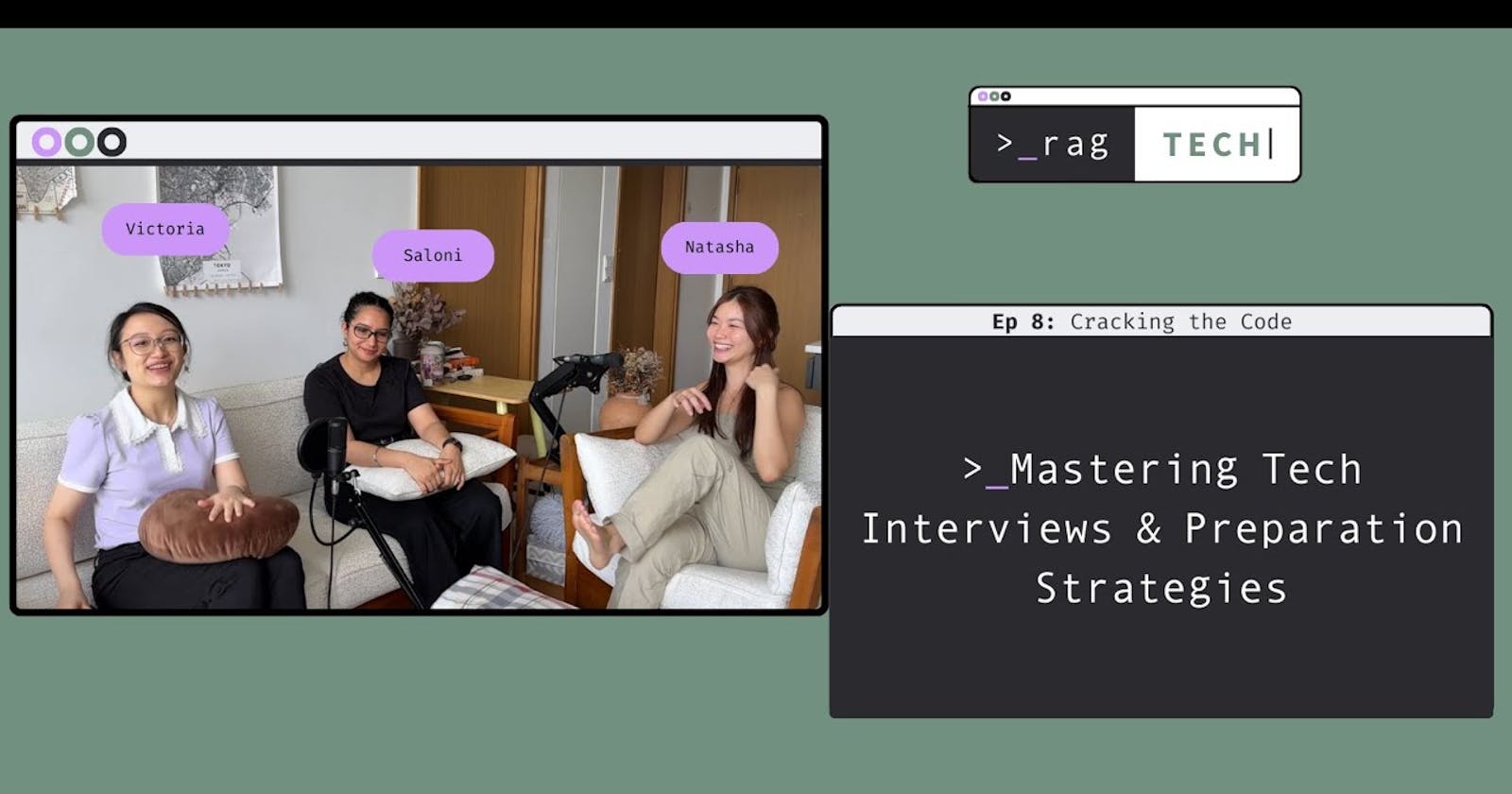In this episode, our ragTech team discuss the importance of interview preparation for those starting a career in tech. They emphasize the significance of being prepared for various interview rounds, including data structures and algorithms questions, system design, and behavioral rounds.
Watch it here:
Approaches to Interview Prep
Victoria shares her approach to interview preparation, which involves being consistent and practicing regularly through monthly sessions. She also stresses the importance of keeping a resume updated and being comfortable with vocalizing thoughts during interviews. Natasha adds that being interview ready also means incorporating interview skills into daily work practices.
According to the Saloni, practicing pair programming and verbalizing your thought process every day can make you more comfortable and prepared for interviews.
This not only helps you articulate your concepts clearly but also showcases your communication skills, which are essential in the tech industry. Also, the increasing use of AI tools like ChatGPT and GitHub Co-pilot can replace routine memorization of syntax and codes. Instead, interviewees should focus on developing their ability to articulate their thought process and prompt AI tools effectively.
Importance of Data Structures & Algorithms
Our team also touches on the topic of data structures and algorithm questions in interviews. Drawing from our own experiences without formal computer science education and still finding success in the industry, we believe it's crucial to recognize the current nature of interviews and the importance of adapting to different interview styles and questions.
Victoria shares her experience studying data structures and algorithms for tech interviews. She explains that while these concepts may not be used every day in as software engineer's job, they serve as valuable tools for problem-solving and demonstrate a candidate's ability to think critically. She emphasizes that mastering data structures and algorithms is essential for interview success, as it builds confidence in hiring managers that the candidate can solve complex problems.
However, we also understand that excessive focus on memorizing algorithms and their names may not be necessary, and instead, a solid understanding of the concepts and their applications is more important. Overall, we encourage a balanced approach to interview preparation, emphasizing the importance of both knowledge and mindset.
Understanding a Company's Interview Process
Not all companies ask algorithm questions and some may focus on creating an app or solving specific problems related to the position. Therefore, researching the companies and their interview processes is crucial. The speaker also suggests looking for a company culture that fits you and not just focusing on big tech companies. They mention that there are many mid-tier companies hiring and interviewing in specific ways.
How to build a resume
Natasha expresses her preference for using LinkedIn over creating traditional resumes, as she believes that all necessary information is already available on the platform. However, she acknowledges that her perspective may come from a place of privilege, as she was able to find jobs before the economic downturn.
She also emphasizes the significance of the resume in the interview process, as it helps interviewers understand the candidate's background and experience, allowing them to ask more specific questions. She suggests that updating a LinkedIn resume regularly with specific examples of projects and achievements can make it easier for interviewers to assess a candidate's value to a team.
What if you don't have prior experience? For university students, recent graduates, or those changing careers, structuring resumes should still focus on past experiences, no matter how minor. It's important to be specific in your resume descriptions.
We also recommend customizing resumes for specific companies and highlighting achievements and personal projects. By doing so, candidates can showcase their growth and unique personality to potential employers.
Conclusion
We hope you enjoyed the recap of this episode! We discussed a lot more that we did not mention in this article. We will be going into a lot more topics soon! Do leave your thoughts or any feedback in the comments below! What are some topics you would want us to talk about or cover? What are some areas we could improve on? Feel free to let us know!
✨Follow us on our socials so you don't miss the next episode!

